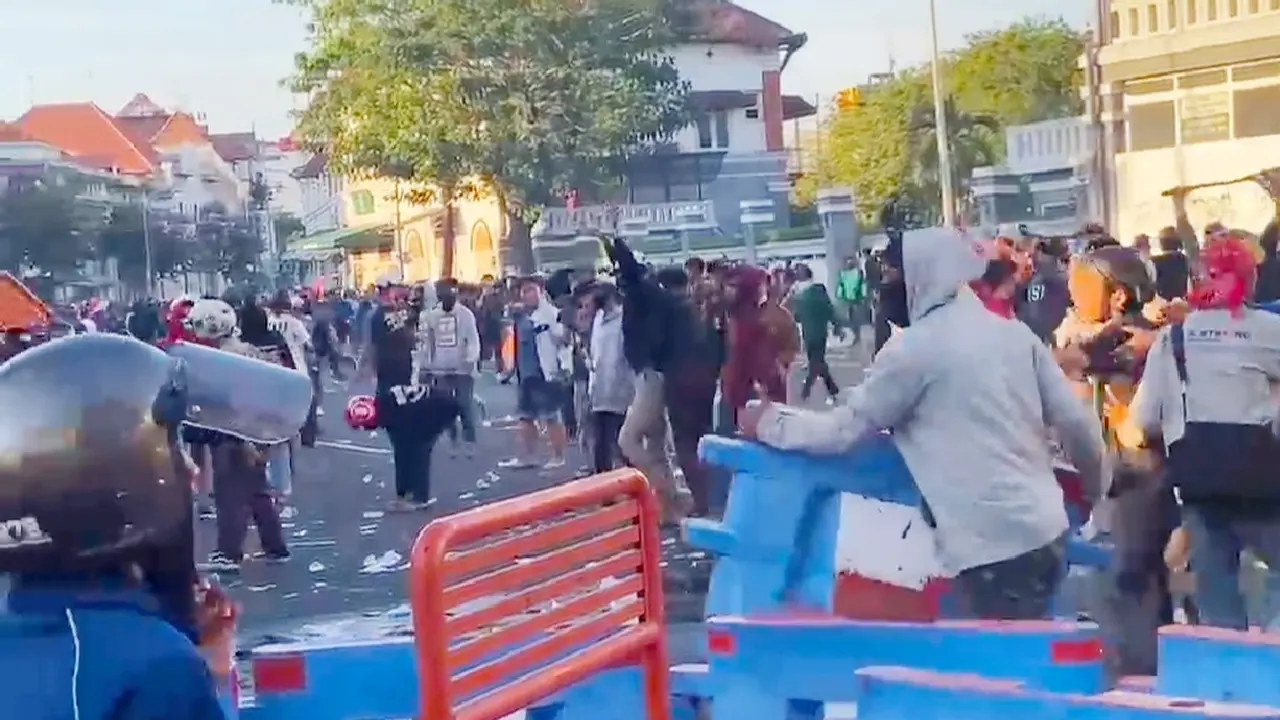The Impact of Planned Demonstrations: How Surabaya Universities Are Shifting to Online Learning
UncategorizedIn recent weeks, several universities in Surabaya have decided to temporarily switch their classes to online learning platforms due to planned demonstrations in the city. This precautionary measure is aimed at ensuring the safety and well-being of students, faculty, and staff, while minimizing the disruption of academic activities.
The Context Behind the Shift
Surabaya, one of Indonesia’s largest cities, has seen a series of public demonstrations in response to socio-political issues. Although most protests are peaceful, past events have occasionally led to traffic congestion, clashes, and disruptions in areas surrounding educational institutions. Recognizing the potential risk, university administrations have decided to act proactively.
Several universities reported that their campuses are located in areas prone to high pedestrian traffic during demonstrations. In addition to concerns about safety, logistical challenges—such as limited public transportation availability and blocked roads—have contributed to the decision to temporarily suspend in-person classes.
The Transition to Online Learning
The switch to online learning involves multiple measures to ensure continuity in education. Faculties are reorganizing schedules, converting traditional face-to-face lectures into online sessions, and using digital communication platforms to reach students effectively.
Professors are encouraged to prepare comprehensive online course materials, including:
- Video lectures for asynchronous learning
- Interactive modules covering key topics
- Quizzes and assessments that can be submitted digitally
- Discussion forums to maintain engagement among students
Many universities are also adopting hybrid solutions for practical courses, where students complete theoretical components online while attending limited in-person sessions under strict safety protocols.
Student Perspective: Advantages and Challenges
For many students, online learning brings flexibility and convenience. They can attend lectures from home, access study materials at any time, and avoid the stress of commuting during demonstrations. This is particularly beneficial for students living far from campus or relying on public transportation.
However, there are notable challenges as well:
- Internet connectivity issues can disrupt live lectures or video streaming
- Limited hands-on experience for lab-based or practical courses
- Reduced social interaction, which may affect motivation and collaboration among peers
Student organizations have emphasized the importance of maintaining communication networks. They encourage students to participate in virtual study groups, online discussions, and digital peer support to ensure that academic progress remains on track.
Ensuring Educational Quality
University administrations are taking steps to maintain high-quality education during this transition. Measures include:
- Conducting regular online assessments to evaluate student performance
- Scheduling virtual office hours for consultations with professors
- Using online platforms to facilitate group discussions, collaborative projects, and peer-to-peer learning
Administrators also stress the importance of mental health support, as extended online learning and concerns about external disruptions can increase stress among students. Counseling services and student support hotlines are being promoted to ensure student well-being.
Broader Implications
The decision to switch to online learning highlights the need for universities to adapt quickly in times of uncertainty. Beyond immediate safety concerns, this situation underscores broader issues in education, such as:
- The importance of digital infrastructure for uninterrupted learning
- The need for faculty training in online pedagogy
- Ensuring equitable access to technology for all students
By adopting online learning, universities in Surabaya are not only responding to the current demonstrations but are also laying the groundwork for resilient academic systems that can withstand future disruptions.
Preparing for a Post-Demonstration Environment
While online learning provides a temporary solution, universities are also planning for a safe return to in-person classes once the situation stabilizes. Measures may include:
- Phased reopening of campuses
- Enhanced security and safety protocols
- Continuous monitoring of public events and transportation conditions
This approach ensures that students can resume their studies without compromising safety, while maintaining academic continuity.
Conclusion
The temporary shift to online learning in Surabaya’s universities demonstrates a careful balance between ensuring safety and maintaining academic quality. While the demonstrations pose challenges to traditional campus operations, proactive measures—including online courses, digital resources, and student support—help mitigate disruption.
Ultimately, this transition highlights the importance of flexibility and resilience in education. By leveraging technology and promoting communication, students can continue to learn effectively despite external challenges.

